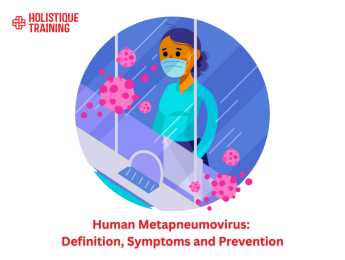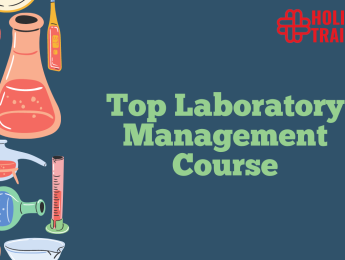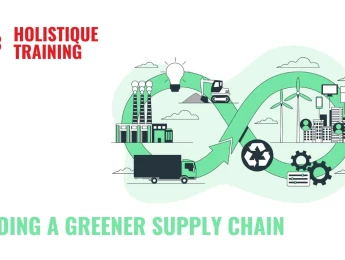- Table of Contents
- Introduction
- What is Quality Assurance?
- Why is Quality Assurance Important?
- 1. Ensures Product Quality and Consistency
- 2. Enhances Customer Satisfaction and Trust
- 3. Reduces Costs Associated with Defects and Rework
- 4. Compliance with Industry Standards and Regulations
- 5. Facilitates Continuous Improvement
- 6. Protects Brand Reputation
- 7. Boosts Employee Morale and Engagement
- 8. Supports Strategic Business Objectives
- 9. Mitigates Risk
- 10. Encourages Data-Driven Decision Making
- Top 12 Skills Needed for a Quality Assurance Specialist
- 1. Attention to Detail
- 2. Analytical Thinking
- 3. Communication Skills
- 4. Technical Expertise
- 5. Problem-Solving Skills
- 6. Time Management
- 7. Knowledge of Industry Standards and Regulations
- 8. Adaptability
- 9. Teamwork and Collaboration
- 10. Critical Thinking
- 11. Familiarity with Testing Tools and Software
- 12. Commitment to Continuous Improvement
- Qualifications to Become a Quality Assurance Specialist
- 1. Educational Background
- 2. Relevant Certifications
- 3. Industry-Specific Knowledge
- 4. Practical Experience
- 5. Soft Skills
- Responsibilities of a QA Specialist
- 1. Developing and Implementing Quality Standards
- 2. Conducting Quality Audits and Inspections
- 3. Testing Products and Processes
- 4. Identifying and Documenting Defects
- 5. Collaborating with Development Teams
- 6. Ensuring Compliance with Regulations
- 7. Training and Mentoring Team Members
- 8. Reporting and Documentation
- 9. Monitoring Product Performance Post-Release
- How to Improve Your Quality Assurance Skills
- 1. Stay Updated with Industry Trends and Best Practices
- 2. Invest in Formal Education and Certification
- 3. Enhance Your Technical Skills
- 4. Develop Strong Analytical and Problem-Solving Skills
- 5. Improve Your Attention to Detail
- 6. Strengthen Your Communication and Collaboration Skills
- 7. Seek Feedback and Learn from Experience
- 8. Leverage Mentorship and Networking
- 9. Experiment with New Tools and Techniques
- The Importance of Leveraging Technology in QA
- Automation:
- Artificial Intelligence:
- Data Analytics:
- Cloud Computing:
- Mobile Testing:
- Salary of a QA Specialist
- Entry-Level Positions:
- Mid-Level Positions:
- Senior-Level Positions:
- Geographic Variation:
- Industry Variation:
- Conclusion
Introduction
Every product, whether tangible or digital, tells a story. This story is woven with threads of creativity, innovation, and effort, but its final chapters are penned with quality assurance. Quality Assurance (QA) isn't just a checkpoint in the production process; it's the guardian of customer satisfaction, the defender of brand reputation, and the keeper of standards that define the excellence of a product. As the demand for high-quality products continues to grow, the role of a Quality Assurance Specialist has become increasingly significant, requiring a unique blend of skills, knowledge, and dedication.
The journey to becoming a proficient QA specialist is paved with challenges requiring more than technical expertise. It involves cultivating a mindset geared toward continuous improvement, meticulous attention to detail, and a deep understanding of the principles that underpin quality assurance. This blog post will explore the critical skills needed for QA specialists, delve into the qualifications and responsibilities associated with the role, and discuss how one can continually improve these essential skills. Additionally, we will touch on the importance of leveraging technology in QA and the rewards of excelling in this field.
What is Quality Assurance?
Quality Assurance (QA) is a systematic process designed to ensure that products or services meet specified requirements and are reliable, safe, and of high quality. It is not merely about finding defects or flaws in a product; it is about preventing them. QA involves a series of planned activities and processes implemented throughout the production cycle to guarantee that the final output is consistent with the established standards.
Unlike quality control, which focuses on identifying and fixing issues after they occur, QA emphasises the prevention of errors and continuously improving processes. It encompasses everything from planning and documentation to testing and analysis. QA is proactive, aiming to create an environment where quality is built into every production stage, reducing the likelihood of defects and ensuring customer satisfaction.
Quality Control Specialist | Quality Assurance Specialist |
Focuses on Product testing and inspection | Focuses on process and system improvements |
Identifies defects after production | Prevents defects during development |
Works on individual product quality | Ensures overall process quality |
Involved in short-term quality checks | Involved in long-term quality strategies |
Corrects issues before product release | Establishes standards to avoid defects |
Why is Quality Assurance Important?
Quality Assurance (QA) is critical in developing and delivering products and services across various industries. Its importance extends beyond merely meeting customer expectations; it is integral to the success and sustainability of any business. Here's a closer look at why QA is indispensable:
1. Ensures Product Quality and Consistency
The primary objective of QA is to ensure that products or services meet the specified quality standards. This involves rigorous testing and validation processes to detect defects, inconsistencies, or deviations from the set criteria. By implementing a robust QA process, companies can maintain high levels of quality across all their products or services, ensuring that every unit or service delivered meets customer expectations. This consistency is crucial for building brand trust and loyalty.
2. Enhances Customer Satisfaction and Trust
Customer satisfaction is directly linked to the quality of products and services they receive. When a company consistently delivers high-quality products, it builds trust and strengthens its reputation in the market. Satisfied customers are more likely to become repeat buyers, provide positive reviews, and refer the product to others. On the other hand, poor quality can lead to negative reviews, loss of customer trust, and ultimately a decline in sales. QA is essential for maintaining customer satisfaction by ensuring that every product or service is reliable, safe, and performs as expected.
3. Reduces Costs Associated with Defects and Rework
Detecting and correcting defects early in the production process is significantly less costly than addressing issues after a product has been released to the market. A strong QA process helps identify potential problems before they escalate, reducing the need for costly rework, recalls, or repairs. Additionally, preventing defects through QA minimises waste and optimises resource utilisation, leading to more efficient production and cost savings. In highly regulated industries, avoiding defects means avoiding fines and legal repercussions.
4. Compliance with Industry Standards and Regulations
In many industries, adherence to strict quality standards and regulatory requirements is not just recommended; it’s mandatory. Regulatory bodies impose these standards to ensure that products are safe for use and meet certain criteria for performance. Failure to comply can result in severe penalties, including fines, product recalls, or even a halt in production. Quality assurance ensures that all products or services conform to these standards, thereby safeguarding the company against legal issues and protecting its reputation.
5. Facilitates Continuous Improvement
Quality Assurance is not just about maintaining current standards; it’s also about driving continuous improvement. By systematically analysing defects, customer feedback, and testing results, QA teams can identify areas for improvement in the production process. This iterative refinement process helps companies enhance their products over time, making them more competitive in the market. Continuous improvement through QA also fosters innovation as companies seek new ways to improve quality and efficiency.
6. Protects Brand Reputation
A single quality failure can have a devastating impact on a company’s brand reputation. In today's connected world, news of product failures spreads quickly, and negative reviews can instantly tarnish a brand's image. Quality Assurance is a safeguard, preventing substandard products from reaching the market. By upholding high-quality standards, companies can protect their brand's reputation and maintain the trust of their customers and stakeholders.
7. Boosts Employee Morale and Engagement
Quality Assurance isn’t just about the end product; it also affects the people involved in the production process. When employees know that their work is part of a system that values quality, it boosts their morale and engagement. A strong QA culture encourages employees to take pride in their work, knowing that their contributions are vital to the company’s success. This sense of ownership and responsibility can lead to higher productivity, better collaboration, and a more positive workplace environment.
8. Supports Strategic Business Objectives
QA is aligned with broader business goals such as market leadership, customer loyalty, and profitability. QA supports the company's strategic objectives by ensuring that products meet or exceed quality standards. High-quality products can command premium prices, differentiate a brand in a crowded market, and open up new business opportunities. Moreover, a commitment to quality can enhance the company’s competitiveness, enabling it to attract and retain customers in an increasingly discerning market.
9. Mitigates Risk
Every product or service carries some level of risk, whether it’s the risk of failure, safety concerns, or customer dissatisfaction. Quality Assurance helps mitigate these risks by systematically identifying and addressing potential issues before they become serious problems. By reducing the likelihood of defects, recalls, or regulatory non-compliance, QA helps protect the company from financial losses and damage to its reputation.
10. Encourages Data-Driven Decision Making
A robust QA process involves collecting and analysing data at every production stage. This data-driven approach allows companies to make informed decisions based on empirical evidence rather than intuition or guesswork. By analysing data trends, QA teams can identify potential issues, predict outcomes, and optimise processes to improve quality. This enhances the accuracy and reliability of the QA process and contributes to better overall business decisions.
By understanding and emphasising the importance of Quality Assurance, companies can ensure that their products or services consistently meet the highest standards, leading to sustained success in the market.
Top 12 Skills Needed for a Quality Assurance Specialist
Quality Assurance (QA) specialists are crucial in ensuring that products and services meet established quality standards. To excel in this role, QA specialists must possess a diverse set of skills that enable them to perform thorough inspections, identify potential issues, and ensure that the final product meets both customer expectations and regulatory requirements. Here are the top 12 skills that every QA specialist should develop:
1. Attention to Detail
QA specialists must have a keen eye for detail. This skill is essential for identifying even the smallest inconsistencies or defects that could compromise the quality of a product or service. Attention to detail ensures that nothing is overlooked, which is particularly important in industries where precision and accuracy are critical, such as pharmaceuticals or aerospace. QA specialists must be meticulous in their work, carefully examining every aspect of a product or process to ensure it meets the required standards.
2. Analytical Thinking
Analytical thinking logically breaks down complex problems and processes into smaller, more manageable components. QA specialists use this skill to analyse data, identify patterns, and determine the root cause of quality issues. This involves evaluating test results, comparing them against established criteria, and making data-driven decisions. Analytical thinking also helps QA specialists to anticipate potential problems and develop proactive solutions, improving overall product quality.
3. Communication Skills
Effective communication is vital for QA specialists, as they often need to convey complex information to different stakeholders, including engineers, developers, managers, and customers. QA specialists must be able to clearly articulate their findings, whether they are documenting test results, explaining defects, or providing recommendations for improvement. Strong written and verbal communication skills are necessary to ensure that all parties involved understand the quality requirements and any issues that arise during the QA process.
4. Technical Expertise
A deep understanding of the technical aspects of the products or services being tested is essential for QA specialists. This includes knowledge of industry-specific standards, testing methodologies, and the tools used in quality assurance. For instance, familiarity with programming languages, software development lifecycle (SDLC), and testing frameworks is crucial in software QA. Knowledge of production processes, material properties, and quality control techniques is key in manufacturing. Technical expertise allows QA specialists to conduct accurate and thorough tests, ensuring that all technical requirements are met.
5. Problem-Solving Skills
Problem-solving is at the heart of QA. QA specialists are often tasked with identifying defects or issues and finding ways to resolve them before the product reaches the customer. This requires creative thinking and exploring multiple solutions to a problem. Problem-solving skills involve identifying the immediate issue, understanding the underlying causes, and implementing long-term fixes that prevent recurrence. QA specialists must be resourceful and persistent in their pursuit of solutions, often working closely with other teams to resolve complex problems.
6. Time Management
QA specialists frequently work under tight deadlines, especially when testing is part of a larger project timeline. Effective time management is essential to ensure that all testing activities are completed on schedule without compromising quality. This skill involves prioritising tasks, managing workload, and coordinating with other team members to meet deadlines. QA specialists must also be able to adapt to changing priorities, as unexpected issues may arise that require immediate attention. Strong time management skills help QA specialists maintain productivity and ensure that quality assurance processes are executed efficiently.
7. Knowledge of Industry Standards and Regulations
Understanding and adhering to industry standards and regulations is a fundamental responsibility of a QA specialist. These standards ensure that products are safe, reliable, and meet the industry's legal requirements. For example, ISO standards, FDA regulations, and other industry-specific guidelines dictate the quality criteria that products must meet. QA specialists must stay up-to-date with these standards and ensure that their testing processes are compliant. This knowledge helps maintain product quality and protects the company from legal issues and potential penalties.
8. Adaptability
The field of quality assurance is constantly evolving, with new technologies, methodologies, and industry standards emerging regularly. QA specialists must be adaptable, willing to learn new skills, and able to adjust their approaches as needed. Whether it’s adopting a new testing tool, learning about changes in regulations, or adjusting to a new project management system, adaptability is key to staying relevant and effective in the role. QA specialists who are open to change and continuous learning are better equipped to handle the dynamic nature of the job.
9. Teamwork and Collaboration
Quality assurance is often a team effort, requiring close collaboration with developers, engineers, product managers, and other stakeholders. QA specialists must be able to work effectively within a team, sharing knowledge, providing feedback, and contributing to the project's overall success. Strong teamwork involves clear communication, active listening, and working well with others to achieve common goals. Collaboration is especially important when resolving complex issues requiring input from multiple disciplines.
10. Critical Thinking
Critical thinking is evaluating information objectively, considering different perspectives, and making reasoned judgments. QA specialists use critical thinking to assess the validity of test results, determine the significance of defects, and decide on the best course of action. This skill is essential for making unbiased decisions that are in the best interest of the product’s quality and the company’s reputation. Critical thinking also involves questioning assumptions and considering alternative solutions, which can lead to more effective quality assurance practices.
11. Familiarity with Testing Tools and Software
In today’s digital age, QA specialists rely heavily on various testing tools and software to conduct their work efficiently. Familiarity with these tools is essential for conducting automated tests, tracking defects, and managing testing workflows. For software QA specialists, knowledge of tools like Selenium, JIRA, and TestRail is often required. In manufacturing, QA specialists may need to be proficient in tools like Six Sigma or statistical process control (SPC) software. Being well-versed in these tools allows QA specialists to conduct tests more effectively and provides a systematic approach to quality assurance.
12. Commitment to Continuous Improvement
A strong commitment to continuous improvement is essential for any QA specialist. This means striving to improve the quality of the products or services being tested and looking for ways to enhance the QA processes themselves. QA specialists should regularly review and refine their testing methodologies, stay informed about industry best practices, and seek out opportunities for professional development. By fostering a culture of continuous improvement, QA specialists can help their organisations achieve higher levels of quality and efficiency over time.
These 12 skills collectively form the foundation for a successful career in quality assurance. By developing and honing these skills, QA specialists can ensure that they are well-equipped to meet their role's demands and contribute to producing high-quality products and services.
Qualifications to Become a Quality Assurance Specialist
Becoming a Quality Assurance (QA) specialist requires a combination of formal education, professional certifications, and practical experience. This role demands a thorough understanding of industry-specific quality standards and testing methodologies, as well as the ability to apply critical thinking to ensure that products or services meet the highest standards. Below is a breakdown of the key qualifications needed to become a successful QA specialist:
1. Educational Background
A strong educational foundation is essential for anyone aspiring to become a QA specialist. While the specific requirements may vary depending on the industry, a bachelor’s degree is generally the minimum educational qualification. Here’s a closer look at the educational pathways that can lead to a career in QA:
Bachelor’s Degree: Most QA specialists hold at least a bachelor’s degree in a relevant field. The most common areas of study include:
- Engineering: Degrees in mechanical, electrical, software, or industrial engineering are highly valued in industries like manufacturing, aerospace, and electronics. These programs provide a solid understanding of the technical aspects of product design, development, and testing.
- Computer Science or Information Technology: A degree in computer science or IT is particularly relevant for those entering the software industry. These programs cover programming languages, software development life cycles, and database management, all of which are crucial for software QA specialists.
- Life Sciences: A degree in biology, chemistry, or a related field is often required in industries such as pharmaceuticals, biotechnology, and healthcare. These programs equip students with the scientific knowledge needed to ensure the quality and safety of products.
Master’s Degree: While not always required, a master’s degree can benefit those seeking advanced positions or roles in specialised industries. A Master of Science (MS) in Quality Assurance, Engineering, or a related field can provide deeper expertise and open up opportunities for leadership roles.
2. Relevant Certifications
Certifications are a key way to demonstrate expertise and commitment to quality assurance. They can enhance your credentials, validate your skills, and provide a competitive edge in the job market. Here are some of the most recognized certifications for QA specialists:
- Certified Quality Auditor (CQA): Offered by the American Society for Quality (ASQ), this certification is ideal for QA specialists involved in auditing processes and systems to ensure compliance with quality standards. The CQA certification covers the principles and practices of auditing and is widely recognized across industries.
- Certified Quality Engineer (CQE): Also offered by ASQ, the CQE certification is designed for professionals who understand the principles of product and service quality evaluation and control. It’s particularly relevant for QA specialists in manufacturing and engineering fields.
- Certified Software Quality Analyst (CSQA): For those in the software industry, the CSQA certification from the Quality Assurance Institute (QAI) is highly regarded. It focuses on the skills and knowledge required to ensure the quality of software products and services.
- Six Sigma Certifications (Green Belt, Black Belt): Six Sigma is a methodology that focuses on improving processes and reducing defects. Certifications in Six Sigma, particularly the Green Belt and Black Belt levels, are valuable for QA specialists in any industry. These certifications demonstrate proficiency in process improvement techniques and data-driven decision-making.
- ISTQB Certified Tester: The International Software Testing Qualifications Board (ISTQB) offers a range of certifications for software testers. The ISTQB Certified Tester Foundation Level (CTFL) is a common starting point, while more advanced levels, such as the ISTQB Advanced Level Test Manager, are available for those with more experience.
- Lean Certification: Lean principles focus on reducing waste and improving efficiency. Certifications in Lean methodologies, such as Lean Six Sigma, are beneficial for QA specialists looking to enhance their skills in process improvement.
3. Industry-Specific Knowledge
In addition to general QA skills, specialists must have industry-specific knowledge that aligns with the products or services they are testing. This knowledge can come from specialised coursework, on-the-job training, or industry certifications. Here are a few examples:
- Manufacturing: QA specialists in manufacturing need to understand the specifics of production processes, material properties, and safety standards. Knowledge of industry standards like ISO 9001, which focuses on quality management systems, is crucial.
- Software Development: In the software industry, familiarity with programming languages, software development life cycles (SDLC), and testing frameworks is essential. QA specialists should also be knowledgeable about Agile and DevOps methodologies, which are increasingly common in software development.
- Healthcare and Pharmaceuticals: QA specialists in these industries must be well-versed in regulatory requirements, such as those from the Food and Drug Administration (FDA) or the European Medicines Agency (EMA). Understanding Good Manufacturing Practices (GMP) and Good Laboratory Practices (GLP) is also important.
- Aerospace and Defense: In highly regulated industries like aerospace and defence, QA specialists must be familiar with standards such as AS9100 (Aerospace Quality Management System) and the International Traffic in Arms Regulations (ITAR).
4. Practical Experience
Practical experience is invaluable for QA specialists, allowing them to apply their knowledge and skills in real-world settings. Employers often look for candidates with hands-on experience in quality assurance, whether through internships, co-op programs, or previous employment. Here are some ways to gain relevant experience:
- Internships and Co-op Programs: Many degree programs offer internships or cooperative education opportunities where students can work in a QA role while completing their studies. These experiences provide valuable exposure to the day-to-day responsibilities of a QA specialist and help build a professional network.
- Entry-Level Positions: Starting in an entry-level QA position often gives you experience. Roles such as QA tester, QA technician, or quality control (QC) inspector offer the opportunity to learn the ropes of quality assurance, develop technical skills, and understand industry-specific standards.
- On-the-Job Training: Many companies offer on-the-job training for new hires, allowing QA specialists to learn the specific processes, tools, and standards the organisation uses. This training is often tailored to the industry and the company’s products or services, making it highly relevant and practical.
5. Soft Skills
While technical expertise and certifications are crucial, soft skills are equally important for success as a QA specialist. These include:
- Communication Skills: QA specialists must be able to communicate clearly and effectively with team members, managers, and stakeholders. This includes writing detailed reports, documenting defects, and explaining complex issues in understandable terms.
- Problem-Solving Abilities: QA work often involves troubleshooting issues and finding solutions to ensure product quality. Strong problem-solving skills are essential for identifying the root causes of defects and developing effective corrective actions.
- Teamwork and Collaboration: QA specialists frequently work as part of a larger team, collaborating with engineers, developers, and product managers. Working well with others, sharing knowledge, and contributing to team goals is key to success.
- Adaptability: The ability to adapt to new technologies, processes, and industry trends is critical in the fast-paced field of quality assurance. QA specialists must be open to learning and evolving as the industry changes.
By meeting these qualifications, aspiring QA specialists can position themselves for a successful career in quality assurance. Whether through education, certifications, practical experience, or the development of soft skills, these qualifications provide the foundation needed to excel in this vital role.
Responsibilities of a QA Specialist
A Quality Assurance (QA) specialist plays a critical role in ensuring that products and services meet established quality standards before reaching customers. Their responsibilities span a wide range of activities, from the early stages of product development to post-release monitoring, making them integral to the success of any organisation. Below is an in-depth look at the core responsibilities of a QA specialist:
1. Developing and Implementing Quality Standards
One of the primary responsibilities of a QA specialist is to develop, document, and implement quality standards and procedures. This involves:
- Creating Quality Guidelines: QA specialists work closely with product developers, engineers, and other stakeholders to establish quality guidelines that align with industry standards, company objectives, and customer expectations. These guidelines serve as a benchmark against which all products and services are measured.
- Standard Operating Procedures (SOPs): They also create and maintain Standard Operating Procedures (SOPs) that outline the steps involved in ensuring quality at each stage of production or service delivery. SOPs provide a consistent framework that ensures quality is maintained across the board.
- Reviewing and Updating Standards: As industry standards and customer expectations evolve, QA specialists regularly review and update quality standards to ensure they remain relevant and effective. This continuous improvement process is vital for maintaining competitiveness and compliance with regulatory requirements.
2. Conducting Quality Audits and Inspections
Quality audits and inspections are key components of a QA specialist’s role. These activities involve:
- Internal Audits: QA specialists conduct regular internal audits to assess the effectiveness of quality management systems and processes. These audits help identify areas of non-compliance, inefficiencies, or potential risks, allowing the organisation to address issues proactively.
- Product Inspections: Throughout the production process, QA specialists perform inspections to ensure that products meet the established quality standards. This can include visual inspections, functional testing, and measurement against predefined specifications.
- Supplier Audits: In industries where external suppliers play a significant role in production, QA specialists may also be responsible for conducting supplier audits. This involves assessing the quality management systems of suppliers to ensure they meet the required standards and do not introduce risks into the production process.
3. Testing Products and Processes
Testing is a critical responsibility for QA specialists, as it directly impacts the quality and reliability of the final product. Key aspects include:
- Designing Test Plans: QA specialists design and implement comprehensive test plans that cover various aspects of the product, such as functionality, performance, durability, and safety. These test plans are tailored to the specific requirements of the product and industry.
- Executing Tests: They carry out different types of tests, including unit tests, integration tests, system tests, and user acceptance tests (UAT). For software products, this might also include automated testing using specialised tools.
- Analysing Test Results: After tests are conducted, QA specialists analyse the results to identify any defects, inconsistencies, or areas for improvement. This analysis is crucial for making informed decisions about product quality and readiness for release.
4. Identifying and Documenting Defects
Defect identification and documentation are central to the QA process. QA specialists are responsible for:
- Detecting Defects: QA specialists identify defects in products or processes during testing and inspections. This can include functional defects, performance issues, usability problems, or deviations from specifications.
- Documenting Issues: Once a defect is identified, QA specialists meticulously document it, detailing its nature, severity, and conditions under which it occurs. This documentation often includes screenshots, logs, or other evidence to aid in the resolution process.
- Tracking Defects: QA specialists use defect tracking tools to monitor the status of each issue from identification through to resolution. This ensures that all defects are addressed before the product is released to customers.
5. Collaborating with Development Teams
Collaboration is essential for QA specialists, as they work closely with development teams to ensure quality is integrated throughout the product life cycle. This involves:
- Providing Feedback: QA specialists provide timely and constructive feedback to developers based on their testing and inspection results. This feedback is crucial for guiding product development and ensuring that quality issues are addressed early on.
- Participating in Design Reviews: QA specialists often participate in design and development reviews, offering their expertise to ensure that quality considerations are incorporated from the start. This proactive approach helps prevent defects and reduces the need for costly rework later in the process.
- Supporting Continuous Improvement: By collaborating with development teams, QA specialists contribute to continuous improvement initiatives, helping to refine processes, enhance product quality, and streamline workflows.
6. Ensuring Compliance with Regulations
Compliance with industry regulations and standards is a critical aspect of quality assurance, particularly in highly regulated industries like healthcare, pharmaceuticals, aerospace, and automotive. QA specialists are responsible for:
- Understanding Regulatory Requirements: QA specialists must stay up-to-date with relevant regulations, such as FDA guidelines, ISO standards, or industry-specific certifications. This knowledge allows them to ensure that products and processes comply with all applicable requirements.
- Conducting Compliance Audits: QA specialists conduct compliance audits to verify that all processes, documentation, and products meet regulatory standards. These audits are essential for avoiding legal issues, penalties, and reputational damage.
- Preparing for External Audits: QA specialists also play a key role in preparing the organisation for external audits conducted by regulatory bodies or certification agencies. This involves ensuring that all documentation is accurate, processes are followed, and any potential issues are addressed in advance.
7. Training and Mentoring Team Members
Training and mentoring are important responsibilities for QA specialists, especially in organisations prioritising quality at every level. QA specialists are often tasked with:
- Conducting Training Sessions: QA specialists design and deliver training sessions for team members on quality standards, procedures, and best practices. This helps to instil a culture of quality across the organisation and ensures that everyone understands their role in maintaining it.
- Mentoring Junior QA Staff: Experienced QA specialists often mentor junior staff, guiding testing methodologies, defect identification, and problem-solving. This mentorship helps to develop the next generation of QA professionals and ensures that the team maintains a high level of expertise.
- Promoting Quality Awareness: QA specialists also promote quality awareness throughout the organisation. This can involve leading quality improvement initiatives, participating in cross-functional teams, and advocating for quality in all business aspects.
8. Reporting and Documentation
Effective reporting and documentation are crucial for maintaining transparency and accountability in the QA process. QA specialists are responsible for the following:
- Generating Reports: QA specialists generate detailed reports summarising the audit, inspection, and test results. These reports provide valuable insights into the quality of products and processes and are used by management to make informed decisions.
- Maintaining Documentation: QA specialists ensure that all quality-related documentation is accurate, up-to-date, and properly maintained. This includes test plans, defect logs, audit reports, and compliance records.
- Communicating Findings: QA specialists communicate their findings to relevant stakeholders, including development teams, managers, and external auditors. Clear and concise communication is essential for ensuring that quality issues are understood and addressed promptly.
9. Monitoring Product Performance Post-Release
The responsibilities of a QA specialist don’t end with the product’s release. Post-release monitoring is essential to ensure that the product continues to meet quality standards in customers' hands. This involves:
- Tracking Customer Feedback: QA specialists monitor customer feedback and reviews to identify any recurring issues or areas for improvement. This feedback is valuable for making future enhancements and addressing any post-release defects.
- Analysing Performance Data: QA specialists also analyse performance data from the field, such as failure rates, returns, or warranty claims. This data helps to identify trends and potential issues that may not have been apparent during pre-release testing.
- Implementing Corrective Actions: If post-release issues are identified, QA specialists work with development teams to implement corrective actions. This can include software patches, product recalls, or process improvements to prevent similar issues in the future.
The role of a QA specialist is multifaceted, requiring a blend of technical expertise, analytical thinking, and effective communication. By fulfilling these responsibilities, QA specialists ensure that products and services not only meet but exceed quality expectations, ultimately contributing to the success and reputation of the organisation.
KPI | Description |
Defect Detection Efficiency (DDE) | Percentage of defects found before release |
Test Coverage | Proportion of code tested during QA |
Customer Reported Defects | Number of issues reported by customers |
Test Case Effectiveness | Ratio of executed tests to identified defects |
Automation Rate | Percentage of automated tests in the process |
Table: KPIs of a quality assurance specialist
How to Improve Your Quality Assurance Skills
Quality Assurance (QA) is a dynamic field that is constantly evolving with new technologies, methodologies, and industry standards. To stay competitive and effective as a QA specialist, continuous skill improvement is crucial. Enhancing your QA skills increases your proficiency and adds value to your organisation. Here’s how you can effectively improve your quality assurance skills:
1. Stay Updated with Industry Trends and Best Practices
Quality assurance is constantly changing due to technological advancements, shifts in consumer expectations, and evolving industry standards. To improve your QA skills, it's essential to stay informed about these trends:
- Follow Industry News: Regularly read industry blogs, journals, and news sites dedicated to quality assurance and related fields. Websites like Software Testing Help, the Ministry of Testing, and the International Software Testing Qualifications Board (ISTQB) provide valuable insights into the latest trends and best practices.
- Attend Webinars and Conferences: Participate in webinars, conferences, and workshops focused on QA. These events offer opportunities to learn from experts, discover new tools and techniques, and network with other professionals. Notable conferences like the STARWEST and EuroSTAR Software Testing Conferences are excellent platforms for learning and growth.
- Join Professional Associations: Becoming a member of professional organisations such as the American Society for Quality (ASQ) or the ISTQB can provide access to resources, certification programs, and networking opportunities that can help you stay ahead in your field.
2. Invest in Formal Education and Certification
Formal education and certification are powerful ways to enhance your expertise and credibility as a QA specialist. They provide structured learning and validation of your skills:
- Pursue Advanced Degrees: Consider pursuing a higher degree in relevant fields such as computer science, information technology, or quality management. Advanced education can deepen your understanding of complex concepts and methodologies in QA.
- Obtain Certifications: Certifications like the ISTQB Certified Tester, Certified Quality Auditor (CQA), and Six Sigma Green Belt are highly regarded in the QA community. These certifications enhance your knowledge and make you more attractive to employers by validating your expertise.
- Online Courses and Training Programs: Platforms like Coursera, Udemy, and LinkedIn Learning offer specialised courses in QA, software testing, and quality management. These courses can help you gain new skills, stay updated on the latest tools, and reinforce your existing knowledge.
3. Enhance Your Technical Skills
Technical proficiency is a cornerstone of effective QA. Improving your technical skills allows you to execute more rigorous testing, identify defects more efficiently, and collaborate better with development teams:
- Learn Programming Languages: Familiarity with programming languages such as Python, Java, or C# can significantly improve your ability to automate tests, understand codebases, and collaborate with developers. Coding skills are precious in roles that require extensive automated testing.
- Master Test Automation Tools: Invest time in learning and mastering test automation tools like Selenium, QTP, TestComplete, and JUnit. These tools help streamline repetitive testing tasks, improve accuracy, and save time for more strategic activities.
- Understand Databases and SQL: Knowledge of databases and SQL is crucial for verifying data integrity and performing backend testing. Writing SQL queries lets you validate that data is correctly stored, retrieved, and manipulated within the application.
- Familiarise Yourself with DevOps and CI/CD Pipelines: As QA becomes more integrated with DevOps practices, understanding Continuous Integration/Continuous Deployment (CI/CD) pipelines and tools like Jenkins, GitLab CI, or CircleCI is increasingly important. This knowledge allows you to ensure that quality checks are seamlessly integrated into the development workflow.
4. Develop Strong Analytical and Problem-Solving Skills
Analytical thinking and problem-solving are at the heart of quality assurance. Improving these skills enables you to identify the root causes of defects, assess risks, and devise effective testing strategies:
- Practise Root Cause Analysis: When you encounter defects, practice identifying their root causes rather than just addressing the symptoms. Techniques such as the "5 Whys" and Fishbone Diagrams can help you develop a systematic approach to problem-solving.
- Engage in Case Studies: Study real-world case studies of quality issues and how they were resolved. Analysing these cases can provide insights into other QA professionals' effective problem-solving techniques and strategies.
- Work on Real Projects: Whenever possible, involve yourself in real projects, especially those that present complex challenges. Real-world experience in solving QA problems under actual conditions is invaluable for honing your skills.
5. Improve Your Attention to Detail
Attention to detail is a critical skill for QA specialists, as it allows you to catch subtle defects and inconsistencies that could compromise product quality:
- Practice Focused Testing: During testing, make it a habit to meticulously follow test cases and specifications without making assumptions. Carefully check all aspects of the product, including edge cases, unusual user inputs, and complex workflows.
- Mindfulness Exercises: Engage in mindfulness exercises that enhance your ability to concentrate and focus on tasks for extended periods. Techniques such as deep breathing, meditation, and focused observation can improve your overall attention to detail.
- Review and Double-Check Work: Develop a habit of reviewing and double-checking your work. Whether it’s reviewing test cases, scripts, or documentation, taking the time to ensure accuracy can prevent errors from slipping through.
6. Strengthen Your Communication and Collaboration Skills
Quality assurance often involves collaboration with various teams, including developers, project managers, and stakeholders. Strong communication skills are essential for effectively conveying issues, negotiating priorities, and working towards common goals:
- Practise Clear and Concise Communication: Focus on delivering clear, concise, and actionable feedback. Whether you’re documenting defects, writing reports, or discussing issues in meetings, clarity is key to ensuring that your message is understood.
- Develop Active Listening Skills: Active listening involves fully concentrating on what others are saying, understanding their perspective, and responding thoughtfully. By improving your listening skills, you can better understand the concerns and needs of your team members, leading to more effective collaboration.
- Engage in cross-functional collaboration:Seek opportunities to collaborate with other teams in areas such as development, operations, and customer support. Understanding their perspectives and working together towards common goals can enhance the overall quality of the product.
7. Seek Feedback and Learn from Experience
Continuous improvement in QA requires a willingness to seek feedback and learn from both successes and failures. This iterative process helps you refine your skills and approaches over time:
- Request Constructive Feedback: Regularly ask peers, supervisors, and other stakeholders for feedback. Constructive criticism can provide valuable insights into areas for improvement, helping you grow as a QA specialist.
- Reflect on Past Experiences: Take the time to reflect on your past projects and experiences. Analyse what worked well, what didn’t, and what you could do differently next time. This reflection is crucial for learning from mistakes and building on successes.
- Participate in Post-Mortem Reviews: After a project is completed, participate in post-mortem reviews or retrospectives. These reviews allow the team to collectively analyse the project, identify lessons learned, and suggest improvements for future projects.
8. Leverage Mentorship and Networking
Building relationships with experienced professionals and peers in the QA community can provide valuable insights, support, and opportunities for skill development:
- Find a Mentor: Seek a mentor who can guide your professional development. A mentor with experience in quality assurance can provide personalised advice, share knowledge, and help you navigate challenges in your career.
- Join QA Communities: Become an active participant in QA communities, both online and offline. Forums like Stack Overflow, Reddit’s software testing community, and LinkedIn groups dedicated to QA provide platforms for asking questions, sharing knowledge, and learning from others.
- Attend Meetups and Networking Events: Engage in local meetups, workshops, and networking events related to QA. These gatherings offer opportunities to meet other professionals, exchange ideas, and learn about the latest trends and tools in the industry.
9. Experiment with New Tools and Techniques
The QA field is rich with tools and techniques to enhance effectiveness. By experimenting with new approaches, you can discover more efficient ways to achieve quality outcomes:
- Explore Emerging Tools: Stay curious about emerging tools and technologies that can streamline QA processes. For example, AI-driven testing tools, advanced automation frameworks, and enhanced reporting tools are continually being developed and can offer new ways to improve your work.
- Experiment with Different Testing Techniques: Diversify your testing techniques by experimenting with different methods, such as exploratory testing, behaviour-driven development (BDD), or test-driven development (TDD). These approaches can provide new insights and enhance your overall testing strategy.
- Pilot New Processes: Don’t be afraid to pilot new processes or methodologies within your team. For instance, if your team hasn’t implemented Agile practices, consider suggesting a trial run to see how it impacts the QA workflow.
You can continuously improve your effectiveness as a QA specialist by seeking opportunities to enhance your skills, embracing new challenges, and remaining open to learning. This commitment to personal and professional growth will not only make you a more valuable team member. Still, it will also contribute to the overall success and quality of your organisation’s products and services.
The Importance of Leveraging Technology in QA
Technology is transforming the field of quality assurance, making processes more efficient, accurate, and reliable. Leveraging technology in QA is no longer optional—it’s essential for staying competitive in today’s fast-paced market.
Automation:
Automated testing tools can significantly speed up the testing process, allowing QA specialists to focus on more complex tasks. Automation also reduces the risk of human error and ensures that tests are conducted consistently.
Artificial Intelligence:
AI is increasingly being used in QA to analyse large datasets, predict potential quality issues, and even suggest solutions. AI-driven tools can help QA specialists identify patterns and trends that might be missed by manual analysis.
Data Analytics:
Advanced data analytics tools allow QA specialists to gain deeper insights into the quality of products and processes. By analysing data from various sources, QA teams can identify areas for improvement and make more informed decisions.
Cloud Computing:
Cloud-based QA tools offer scalability, flexibility, and accessibility, allowing teams to collaborate more effectively and conduct testing from anywhere in the world. This is particularly useful for global organisations with distributed teams.
Mobile Testing:
With mobile apps' increasing importance, mobile testing has become a critical part of QA. Tools designed specifically for mobile testing help ensure that apps work flawlessly across different devices and operating systems.
Salary of a QA Specialist
The salary of a QA specialist can vary widely depending on factors such as experience, location, industry, and level of responsibility. However, QA specialists generally enjoy competitive salaries, reflecting the importance of their role in ensuring product quality.
Entry-Level Positions:
QA specialists starting in the field can expect to earn an average salary of around $50,000 to $60,000 annually. This can vary depending on the industry, with software QA specialists often earning higher starting salaries.
Mid-Level Positions:
With several years of experience, QA specialists can see their salaries increase to an average of $70,000 to $90,000 annually. Those who have gained additional certifications or specialised skills may command even higher salaries.
Senior-Level Positions:
Senior QA specialists or QA managers typically earn between $90,000 and $120,000 per year. In high-demand industries or at top-tier companies, salaries can exceed $150,000.
Geographic Variation:
Salaries can also vary significantly depending on location. For example, QA specialists in major tech hubs like San Francisco or New York City tend to earn higher salaries than those in smaller cities or regions with a lower cost of living.
Industry Variation:
The industry also influences salaries. QA specialists in highly regulated industries, such as pharmaceuticals or aerospace, may earn more due to the complexity and critical nature of their work.
Conclusion
Quality assurance is more than just a job; it’s a commitment to excellence. As a QA specialist, you play a crucial role in ensuring that products meet the highest quality, reliability, and safety standards. The skills you bring to the table—ranging from attention to detail and analytical thinking to technical expertise and communication—are essential for the success of any project.
Becoming a proficient QA specialist is ongoing, requiring continuous learning, practice, and a willingness to embrace new technologies. By honing your skills, staying organised, and leveraging the latest tools, you can excel in this field and contribute to producing products that not only meet but exceed customer expectations.
As the demand for quality continues to grow, so does the importance of QA specialists. With the right qualifications, skills, and mindset, you can build a rewarding career in quality assurance, helping to shape the future of products and services across industries.
To further enhance your expertise, consider enrolling in our course, "The Essentials of Quality Assurance Management." This comprehensive program is designed to equip you with the advanced skills and knowledge needed to excel in your QA career, positioning you as a leader in the field. Enrol now by clicking the link below!


























